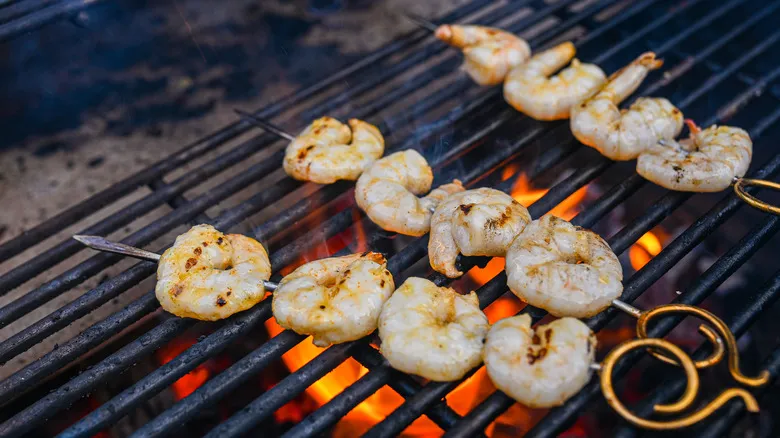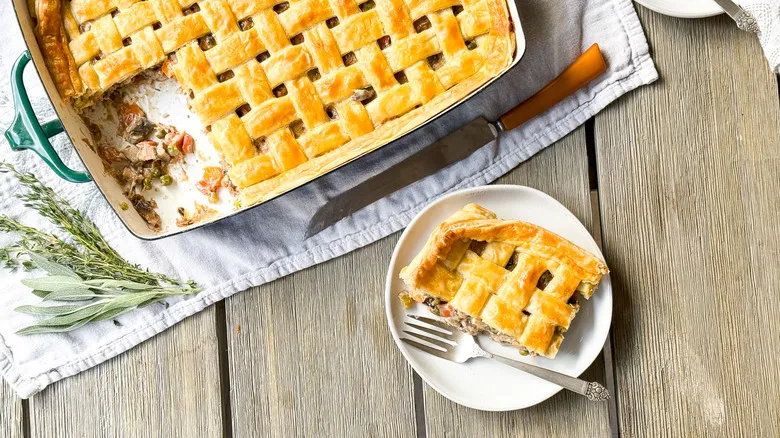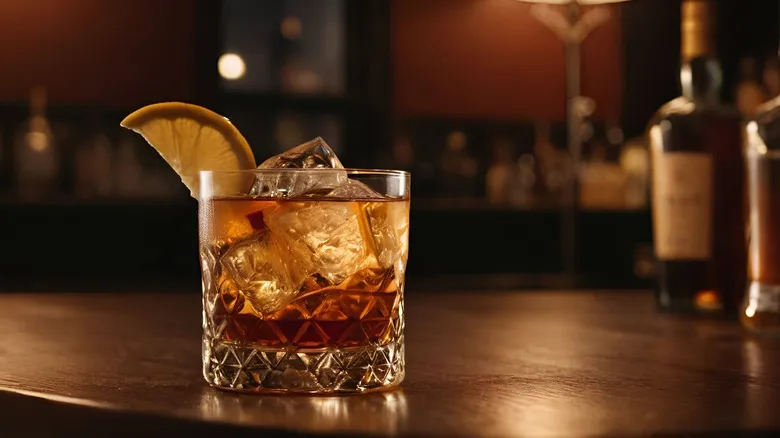The importance of fat in shrimp marinades
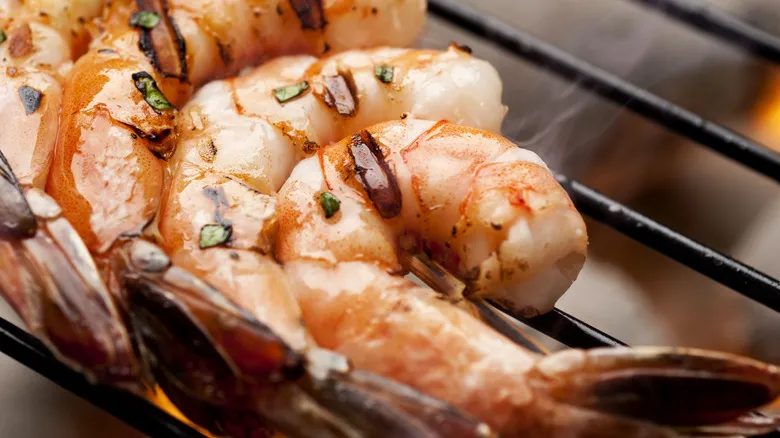
Whether you're preparing grilled shrimp tacos or simply searing skewers for a salad, it's useful to think about the role of the marinade beyond just its taste. The fat element is particularly important, especially since shrimp is a very lean protein. Not only does it add moisture to your grilling, but as Jonathan Bautista notes, "the oil serves as a barrier, stopping the salt or acid in the marinade from cooking or curing the seafood." It's no wonder that this is the marinade's key ingredient.
Moreover, the oil helps keep your shrimp from sticking to the grill, which is a common problem. Be sure to clean your grates thoroughly between each use to further address this issue. Lastly, don't overlook that fat is also a fantastic source of flavor. In addition to reliable choices like olive oil and butter, you can experiment with dairy fats such as sour cream and yogurt, or try avocado oil for a unique twist in your shrimp marinade.
Make sure to keep your acid levels in check
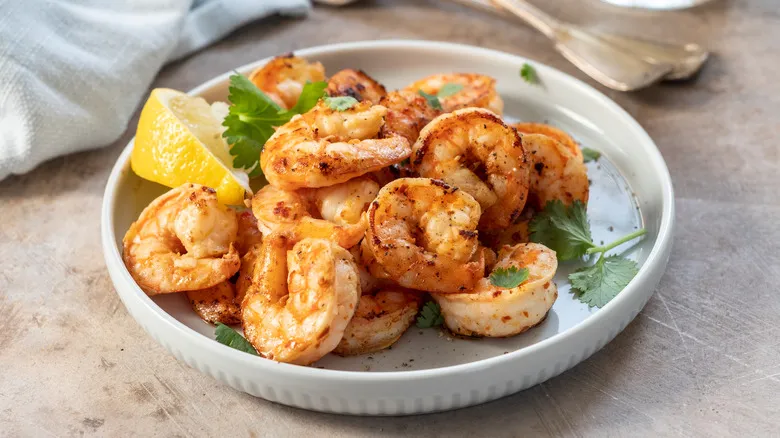
Another key component of Jonathan Bautista's marinade recipe is the acidic ingredients, which should be used with care. The chef likens it to ceviche because of how a highly acidic marinade works. If you add too much citrus or vinegar, it can lower the pH to a point where the proteins in the shellfish begin to denature. This process firms up the shellfish and alters their appearance, making them resemble cooked shrimp rather than raw.
Consequently, this can disrupt your grilling plans by changing the texture of the flesh before it even hits the heat. In addition to keeping the acid content light, it's crucial not to let the marinating process go on for too long. "Marinades should be applied one to two hours before cooking," Chef Bautista recommends.
Keep it simple, and the acid's tenderizing effects will work in your favor. Moreover, the citrus in your marinade not only enhances the flavor of the crustaceans with a bright and zesty kick but also helps eliminate any fishy taste from the shrimp. To achieve this, consider using a straightforward salmoriglio marinade. Just ensure it's well-balanced, and let your marinated grilled shrimp take center stage.
Recommended
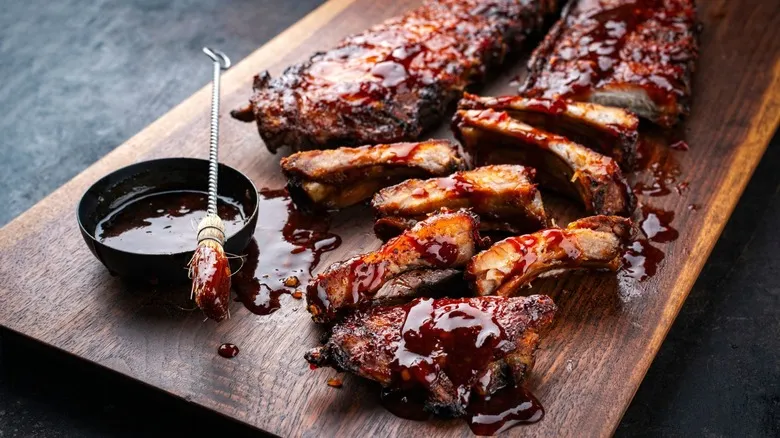
Your Homemade BBQ Sauce Will Taste Unforgettable With An Extra Condiment
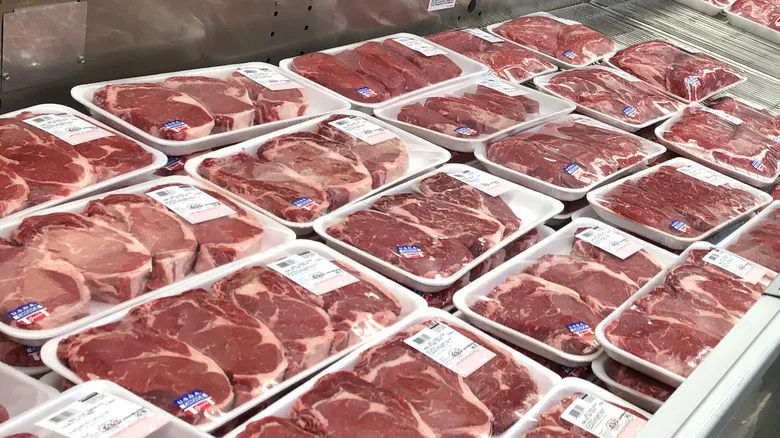
The Easy Way To Save Money Buying Steaks At Costco
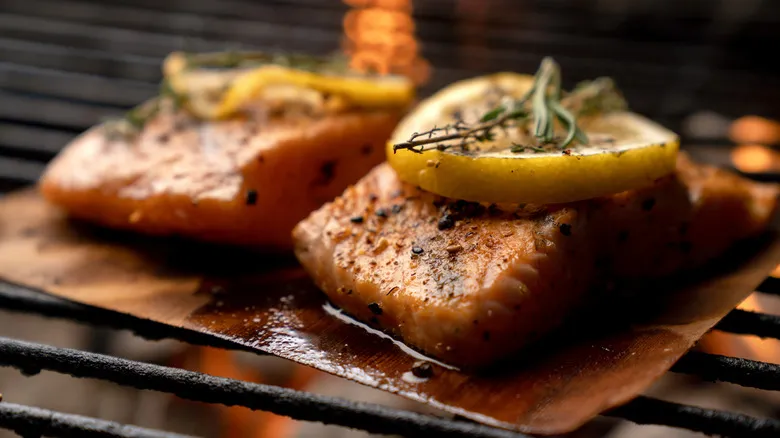
The Pro-Chef Tips You Need For Perfectly Grilled Fish
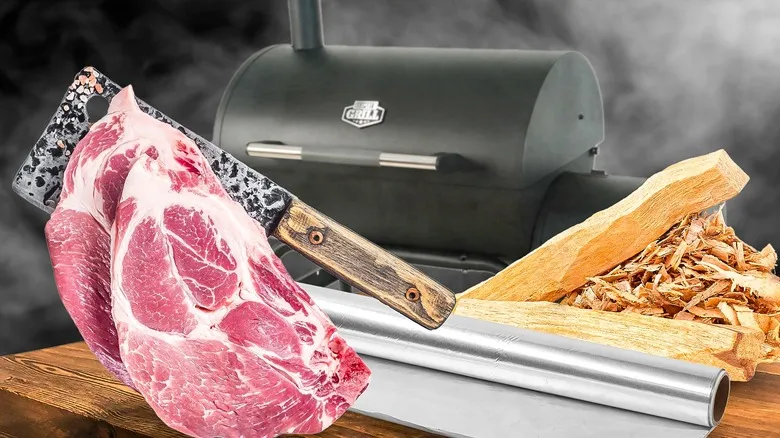
12 Tips For Smoking Tender Pork Shoulder
Next up

